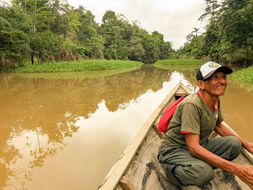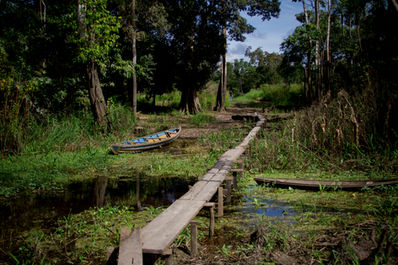

ECO+ETHNO TOURISM
Sustainable economic development in indigenous communities is essential for the protection of wildlife in the Amazon. Poverty in the communities negatively affects biodiversity when the only means to subsist and nourish the feeble local economies are based on the unsustainable extraction of local resources such as wildlife and timber, drug trafficking, and mass tourism, which further impoverishes local livelihoods and puts their long-term subsistence at risk.
Since 2010, Entropika has worked with key communities previously involved in illegal natural resource extraction to develop sustainable economic alternatives such as low-impact Wildlife Watching Tourism (WWT) and experiential tourism initiatives.
* COVID-19 update: Due to the recent outbreak of the COVID-19 pandemic worldwide, all tourism operations in these communities are on hold. We are currently looking at ways to mitigate the negative impact of the pandemic on these initiatives.
With our assistance and training, two Peruvian communities previously involved in illegal trade now have registered tourism associations which democratically allocate the revenue gained from WWT activities for services and infrastructures that benefit the whole community and local ecosystem. Through this process, association members develop skills in natural resource management, accountability, conflict resolution, and wildlife protection at a local level.
Together with community members, we carry out wildlife monitoring to measure the impact of these income-generating initiatives on wildlife populations.
The idea is to show tourism agencies, operators, and hotels that small-scale nature tourism can be equally, if not more, lucrative than mass tourism, while enhancing awareness of the legal repercussions of profiting from the illegal use of wildlife in tourism.
Thanks to the collaboration with online promoters and a nearby reserve, the communities now receive tourists full time, providing a salary for 60 people, improving family income and natural resources management, and set an example at regional level for sustainable community tourism projects, contributing to the Amazon’s emergence as a destination for ethical tourism.

























